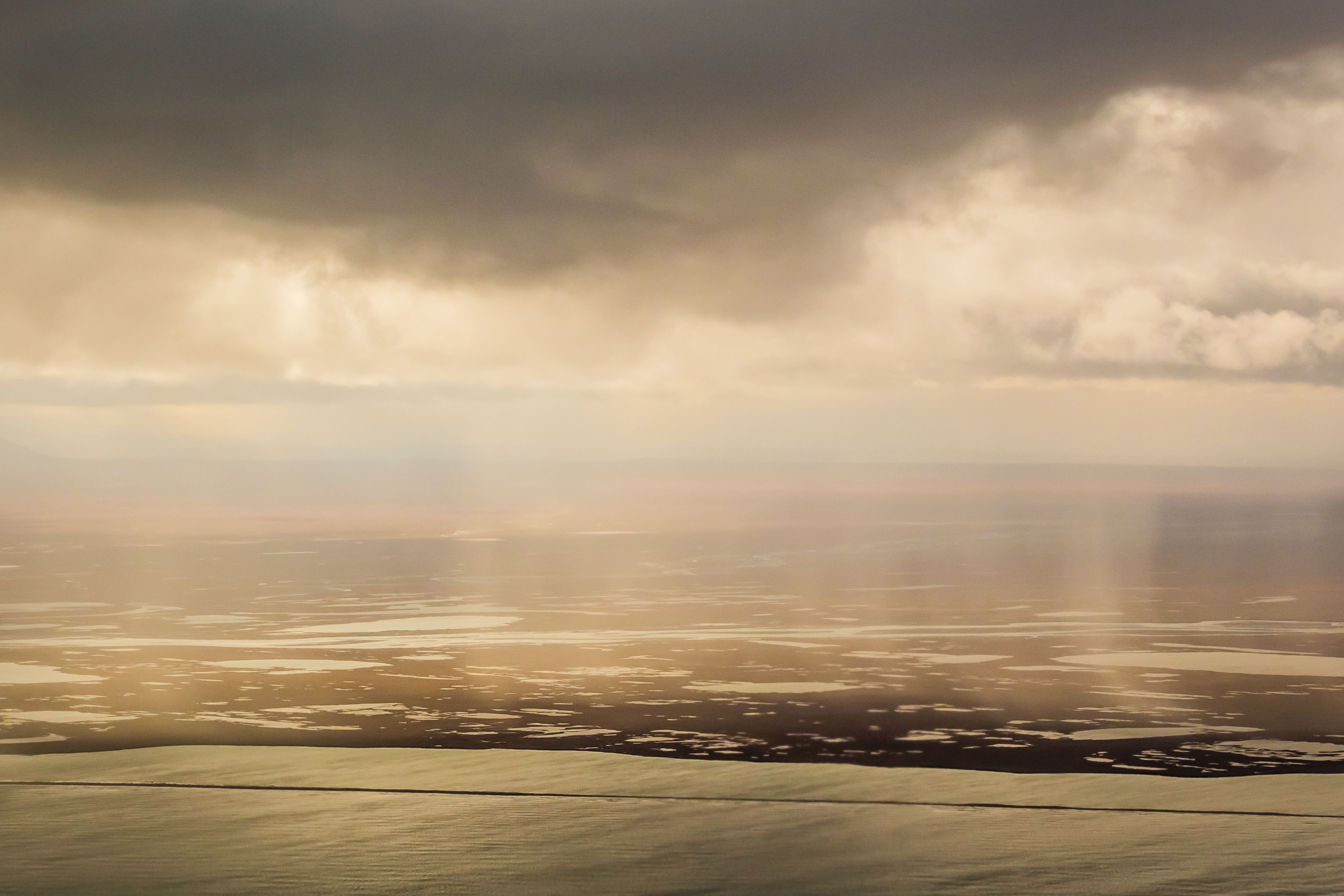As hopes for drilling in Alaska’s Arctic refuge rise, Native corporations argue over potential riches

With some Alaskans increasingly hopeful the new Congress will open the Arctic National Wildlife Refuge to drilling after decades of failed attempts, some Alaska Native corporations are arguing they deserve to share the wealth.
Those Native corporation assertions have prompted North Slope Borough-based Arctic Slope Regional Corp., the only regional Native corporation enjoying rights to future oil revenues from subsurface land it owns beneath the refuge, to ask the others to back off. One of those letters, obtained by Alaska Dispatch News, demands that one of the other corporations stop asking Congress to require ASRC to share.
Ty Hardt, ASRC’s director of communications, said in an email Friday that in letters to other Alaska Native corporations, “We also indicated our unhappiness at attempts by a few to re-open a long-resolved issue and attempt to undermine a settlement agreement from years ago.”
The fight comes amid growing efforts to open to drilling the 19-million-acre coastal plain of the refuge, with some Alaskans increasingly hopeful an all-Republican leadership in Washington, D.C., will overcome resistance from opponents to the idea. But even that is no guarantee it will ever happen — during the George W. Bush administration, Republican control of Congress and the White House failed to unlock the refuge.
[Republicans step up push for Arctic drilling in wildlife refuge]
The letter obtained by Alaska Dispatch News shows that on Feb. 10, Rex Rock Sr., president of the Arctic Slope Regional Corp., urged Gail Schubert, president of Bering Straits Native Corp., to stop asking Congress for legislation requiring that ASRC distribute future oil revenues from ANWR to other Native corporations.
Rock wrote that such a step would be a “taking” of ASRC’s private property. He argued that if oil development is allowed in ANWR, revenues tied to ASRC’s subsurface lands do not have to be shared.
“As we work with members of our Congressional delegation to finally conclude more than four decades of effort to authorize a responsible oil and gas program in ANWR, we understand that you are attempting to enlist Congress’ assistance in taking private property owned” by ASRC, he said.
“ASRC and its shareholders strongly oppose this proposed taking,” he wrote.
Neither Rock nor Schubert returned phone calls seeking comment.
The issue dates back to the 1971 Alaska Native Claims Settlement Act that established 12 Native regional corporations in the state, eventually gave them title to millions of acres of Alaska land, and divided more than $900 million cash among them. The law also required them to share 70 percent of revenues earned from the oil, gas and mineral rights they obtained under the settlement. That sharing provision became known as 7(i) for the section of ANCSA that contained it.
Rock’s letter referenced a 1982 agreement among the state’s regional corporations. He said subsurface lands acquired in a trade for surface lands are exempt from the 7(i) requirement.
Rock said that in 1983, ASRC exchanged surface lands at Gates of the Arctic National Park and Preserve — the nation’s northernmost national park — for lands beneath ANWR’s coastal plain.
Rock said Schubert’s actions lobbying to change the law “are a breach of the terms and obligations under the Section 7(i) Settlement Agreement” of 1982.
“I therefore request that you cease these efforts immediately and desist from any further efforts that would result in an infringement of ASRC’s property rights,” Rock wrote. “Otherwise, ASRC will take any and all legal remedies available to rectify the situation.”
On March 3, three weeks after the letter to Schubert, Rock sent another letter. He said ASRC is “immediately” pulling out of the Inuit Arctic Business Alliance, and eliminating a position ASRC established to support the alliance.
The alliance was formed in 2015 by ASRC, Schubert’s Bering Straits Native Corp., and Kotzebue-based NANA Regional Corp. to ensure each benefited from Arctic development.
In his letter dropping membership, Rock said that “recent events” led ASRC to reconsider its membership in the alliance.
“I have determined that the aggressive conduct against ASRC by an alliance member is not aligned with ASRC’s integrity, values or business model,” Rock wrote. He didn’t provide names or companies, or describe the conduct that offended him.
“While this is an unfortunate circumstance, it is a necessary decision on behalf of ASRC,” he wrote.
Hardt said ASRC’s decision to pull out of the business alliance was unrelated to the ANWR 7(i) issue.
“As the primary provider of funding, ASRC simply made a business decision to step away from IABA at this time,” he said in an emailed statement.